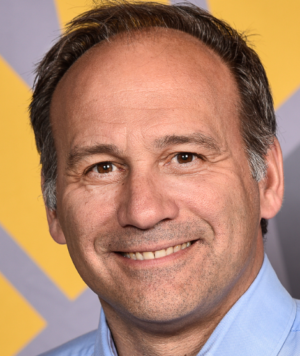If ‘general counsel’ is a job title that leaves you scratching your head, the question to ask might be not so much ‘what does a general counsel do?’ but rather ‘what don’t they do?’

“Being in-house counsel is really more than just providing legal advice,” says Jean-François Legault, the lawyer who has just taken on the multi-faceted role at McGill. “It’s providing legal and business advice, meaning you have to understand the context in which your employer operates.”
As the head of the University’s legal services unit, the General Counsel is responsible for advising senior administration on an enormous range of issues where legal factors can have an impact on the University’s daily operations and strategic objectives. Speaking with the McGill Reporter on just his second day on the job, Legault took pains to emphasize the importance of understanding not only the legislative and regulatory framework in which a university operates, but also the broader objectives of the institution.
“It’s one thing to be an expert in your field of law and be providing the right legal advice at the right time, but it’s also important to enrich that with some business advice,” he says, adding that he has a mountain of reading to do and people to meet to familiarize himself with his new environment and with McGill’s strategic objectives. As Legault gets up to speed in his new position, he will be supported by the team of seven in-house lawyers he now leads – a team he describes as a “very sophisticated, seasoned, autonomous group”.
From the business world to serving the public
Legault’s career has taken him from private practice to in-house roles with major corporations, including Transat and Bell Canada, where he guided the negotiation of multi-million-dollar contracts in the rapidly expanding area of mobile communications. More recently, he moved away from the commercial sector to head up legal and risk management affairs at VIA Rail, the federal Crown corporation that operates Canada’s national passenger rail service.
“There’s kind of a continuation there,” he says of his latest move to McGill. “I’ve gone from business to public service. And now it’s another public service environment, enabling higher education that helps people move forward in their lives and their careers.”
Legault is excited to be starting at McGill at around the same time as Principal and Vice-Chancellor Deep Saini.
“We had a really good conversation,” he says. “With my experience, I might be able to bring another point of view because I’m not from academia. So, hopefully, I’ll be able to contribute in that way and help McGill and the new Principal and Vice-Chancellor meet the objectives that he wants to set for the University.”
Retiring General Counsel Line Thibault looks back on 25 years at McGill
Few people know the complexity of the General Counsel’s job at McGill better than Legault’s predecessor, Line Thibault. Speaking with the Reporter a few days before her retirement, Thibault said there is sure to be a few surprises in store for her former Bell Canada colleague Legault, as she recalls the steep learning curve she encountered when she took on the role 25 years ago.
“It never occurred to me when I joined the University that my new employer would be buying huge hotels to transform them into student residences; it didn’t occur to me that I would be working on the issuance of debentures or investments in private equity for the endowment; no one mentioned research-related legal work, the creation of spin-offs, licensing, and so on – and yet, it was a very significant part of the job as soon as I joined.
“So, I was in shock for a while,” Thibault says with a chuckle.
On the evidence of 25 successful years in the job, Thibault overcame that initial shock, and went on to handle some of the most complex and sensitive dossiers imaginable with exemplary skill and composure. When asked about the achievements of which she is most proud during her time at McGill, she names two major issues from recent years: the COVID-19 pandemic and the New Vic Project.
“It was an enormous amount of work in difficult circumstances that had the potential of harming the University for a very long time,” Thibault says of her team’s role during the pandemic. “And the answers to legal problems were far from obvious or clear.”
Of the settlement agreement reached earlier this year with the Kanien’keha:ka Kahnistensera (Mohawk Mothers) that has allowed work on the New Vic Project to move forward, Thibault says:
“It was a difficult exercise, but I hope that through this, we have grown and we have paved the way to a better understanding between the University and the plaintiffs, and perhaps paved the way to more trust between us. I’m proud of that.”
